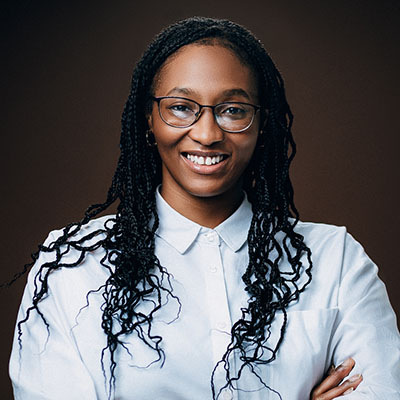Oribi Edmund-Tam’nabo

- Administrative Officer for Hilton Convention Centre, Aberdeen.
- Sustainable Community Designer for Aberdeen Commercial.
- Facilitator for Home Grown Plus (Africa)
- Freelance Scriptwriter
- Song Writer
- Entrepreneur
Aberdeen, Scotland
What inspired you to want a life in Architecture and the creative industries?
Growing up in High school, I would write songs and sing them to my friends as a way of entertaining ourselves. At the time I felt it because I liked creating music. But as I got older, I got into photography, crocheting, and then dancing, soon I found myself interested in drama and theatre, and then my friend and I started a community service initiative all in High school.
It was towards the end of university, that I learned where my real drive for creativity and starting new things comes from. I realized that I got stimulated when a problem, a blank sheet of paper, or a potential untapped is presented to me or even a story or an angle to a story to be explored.
I learned quickly that it is not really about the creation but the creating and starting process of an idea that inspires me. I am inspired by concept generation; the design process and the different tangents a person’s mind can take to reach a solution. It is all beautiful to me.
Who inspired you in finding your path to Architecture and the creative industries?
Yes, even though I always had a creative spark in my personality. I owe it all to my mother who always encouraged me to hone my creative gifts. In her last words to me, she told me to seize every opportunity I see in life, so I always seize the moment to be creative and it has been a blessing.
How you unlock obstacles and overcome bias in your work.
I would always show up and I show out and I do it with a smile on my face. This simply means that I come to work aiming to give my 200% best every day. Once people catch on that you work with your heart, you become an asset. In summary, become an asset in your workspace and you may not experience much bias against you.
What improvements you feel are required to promote effective change in the academic and working environment?
In the UK there are increasing ethnic fusions in certain work sectors hospitality, health care, and engineering but not much is seen in the architectural and design space.
There are fewer opportunities for international students to have architectural jobs in the UK. I think if the government, academic bodies firms, and organizations come together to make this a priority, there could be endless solutions, and this would elevate the UK’s standing with foreign countries.














